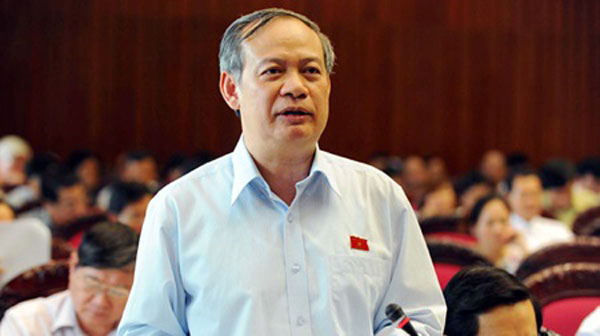
What should the National Assembly do to keep group interests away from the process of making of laws and ordinances?
In practice, the Government submits a draft law and the National Assembly (NA) will pass or block it. If the NA is sufficiently capable in terms of skills and has an objective appraisal procedure, then no one can sway them. We should not be afraid of group interests as all laws are supposed to be debated publicly before passage.
A quality draft law is one that identifies the mechanisms and policies it targets in the relevant area of law governance and calculates the effects it is expected to exert on society. This law must be based on people's interests.
In many countries, the making of policy and law is done by legislators. Specialised agencies are assigned to draft bills that are then submitted to parliament for passage.
In other countries, various players are involved in making draft laws, but there is a focal area or specialised agency in charge of reviewing and finalising them and submitting them to parliament for passage.
In whatever way, it is important that the principles of democracy, objectivity, disclosure and transparency are ensured in policy and law making so that group interests can be avoided before the bills become laws.
 |
|
Dinh Xuan Thao. — Photo vietq |
Deputies have warned of draft laws that are biased in favour of groups or ministries and of policy lobbying in the form of inviting ministry experts and NA deputies on overseas trips. How do you feel about this?
This might have happened. To redress this, there should be clearer law to keep the process objective. In fact, all draft laws are put to debate at the NA twice before passage. This is the chance for the NA to act boldly and scrap draft laws it disagrees with
When a draft law makes its way to the NA on the first submission for debate, it already lies in the court of the NA. , where the NA's appraising agency should work to ensure that the draft law be perfected and ready for passage through the NA.
Previously, drafting agencies were allowed to defend the bills they had drafted until they passed the NA. However, this practice ended in 2008 and has been replaced by the drafting agency doing the only job of submitting the draft law it made to the NA. This means that after a draft law's submission, it will be in the hands of the NA's Standing Committee for the remainder of the process until it passes the NA.
What do you think can be done to keep group interests away from the process of law making in the NA?
I think the appraisal of draft laws must be as independent as possible. After submission, a draft law is totally up to the NA. Once in the NA, it will go through a tight procedure, consisting of two rounds of debate (one being group discussions and the other at plenary meetings). It is these public debates that are a good chance to make any improvements. Still, humans hold the key. Each deputy should be objective and unbiased.
Experience of past NA meetings shows that the composition of NA deputies influences the results of debate on draft policy or law or any critical decision that is due to pass the NA. When a draft law prepared by a certain ministry is put to a debate where the majority of audience comes from that ministry, the debate gives results in favor of the majority.
There have been debates in which comments made by deputies of one sex or from a certain sector made up the bulk. For example, at one debate, between 20 and 25 deputies made comments on the draft law but it turned out that 15 came from the area pertaining to the draft law in debate.
If the law allows this to happen, it would be the majority of comment makers that will have the say, not the majority of NA deputies. Therefore, to be comprehensive and fair, I suggest that in addition to the comments made at NA debates, written comments be collected from other deputies as well.